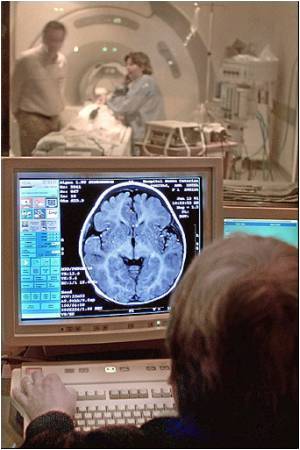Muscle function may be enhanced by boosting a key brain chemical, say researchers at Vanderbilt University, US.

Randy Blakely, Ph.D., director of the Vanderbilt Center for Molecular Neuroscience, and his colleagues inserted a gene into mice that increased the production of a protein called the choline transporter at the neuromuscular junction.
The choline transporter is vital to the capacity for muscle contraction — including the ability to breathe — because it regulates the supply of choline, which is the precursor to acetylcholine, a neurotransmitter essential for muscle contraction.
“We reasoned that giving more of this protein might enhance muscle function and reduce nerve-dependent fatigue,” Blakely said.
They found the mouse they engineered could run on a treadmill twice as long as a normal mouse by increasing its supply of acetylcholine.
Other researchers have manipulated the gene for the muscle tissue growth factor myostatin to produce animals with greater strength and endurance, but Blakely said this may be the first time “neural endurance” was enhanced by manipulating the nerves that innervate muscle.
Advertisement
These disorders include muscular dystrophy, congestive heart failure, depression, schizophrenia, Alzheimer’s disease and attention-deficit hyperactivity disorder (ADHD). “The brain uses acetylcholine for a wide variety of functions, including the ability to sustain attention,” Blakely noted.
Advertisement
With funding from the National Institutes of Health (NIH), the researchers are developing choline transporter-targeted agents that could lead to new medications for these conditions.
The study was supported by the NIH.
Source-Medindia










